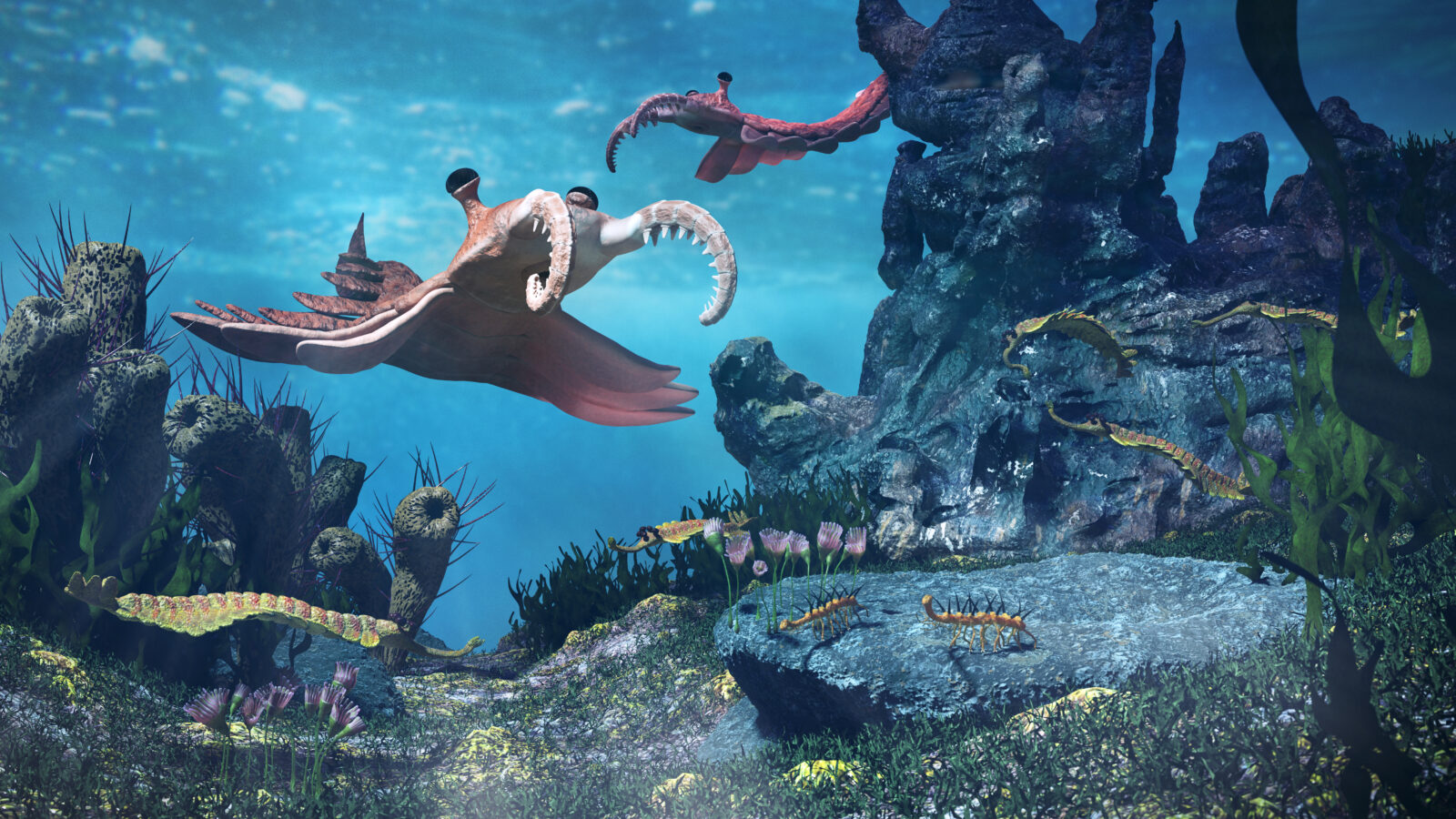


Debunked Transitional Fossils Just the Tip of the Iceberg
On today’s ID the Future Casey Luskin hosts distinguished German paleontologist Günter Bechly to discuss Bechly’s essay in the recent Harvest House anthology, The Comprehensive Guide to Science and Faith: Exploring the Ultimate Questions About Life and the Cosmos. Darwinian evolution predicts a gradually branching tree of living forms, with one form shading into another over long periods of evolution, with each transitional step almost too modest to notice. Does the fossil record suggest such a pattern? Quite the opposite, Bechly says. Instead the pattern of the fossil record is consistently one of sudden appearance, and evolutionists have yet to successfully construct a single robustly populated series of gradually transitioning fossils that move chronologically from one form to a distinctly different morphology. Darwinism would lead us to expect such transitional sequences all over the fossil record, and yet evolutionists, searching assiduously for more than 160 years, have yet to construct a single one of these. Bechly debunks the hype around some fossil sequences, such as that said to have been assembled from ape-like to human. He explains the difference between “transitional forms” as paleontologists generally use the term and the meaning of the term for evolutionists attempting to defend modern Darwinism. And he and Luskin also discuss fossil forgeries, how to tell real from fake fossils, and four explosions of morphological novelty in the history of life.

A Paleontologist Buries Another Proposed Cambrian Precursor
On this ID the Future, German paleontologist Günter Bechly explains why the Precambrian fossil Namacalathus fails as a transitional precursor to the Cambrian explosion. Darwinists want to find transitional precursors to the Cambrian animals to minimize how poorly the Cambrian explosion fits with Darwinism’s story of a gradual evolutionary development. Dr. Bechly gives other examples of such efforts as well and shows how each fails. As he says, the more we learn about the Cambrian and Precambrian, the more dramatic the Cambrian explosion appears and the poorer it fits with modern evolutionary theory. As he also notes, the points he makes in this episode have been made by mainstream evolutionary paleontologists. He differs only in stepping back from the larger pattern and arguing for intelligent design as a far better explanation than any version of blind evolution. His conversation with host Andrew McDiarmid pivots off of two articles Bechly wrote at Evolution News, here and here.

Wikipedia Throws Günter Bechly Down the Orwellian Memory Hole
On this episode of ID The Future, Robert Crowther talks with paleontologist Dr. Günter Bechly about his entry on Wikipedia which was created in 2012 and suspiciously disappeared in 2015 when he started supporting Intelligent Design. An eminent paleontologist, Bechly was curator of the State Museum of Natural History in Stuttgart, Germany and had numerous species as well as even a family named after him, a high honor in the field. Crowther and Bechly go over the specious reasons given by Wikipedia for Bechly’s deletion, revealing the ideological and authoritarian nature of some the editors at Wikipedia.

On Human Origins: What the Fossils Tell Us, pt. 4
On this episode of ID the Future, hear more of Casey Luskin’s recent talk at a recent Science and Human Origins conference. Casey discusses why the fossil evidence doesn’t support the claim that humans evolved from ape-like precursors.
Read More ›
On Human Origins: What the Fossils Tell Us, pt. 3
On this episode of ID the Future, hear more of Casey Luskin’s recent talk at a recent Science and Human Origins conference. Casey discusses why the fossil evidence doesn’t support the claim that humans evolved from ape-like precursors.
Read More ›
On Human Origins: What the Fossils Tell Us, pt. 2
On this episode of ID the Future, hear more of Casey Luskin’s recent talk at a recent Science and Human Origins conference. Casey discusses why the fossil evidence doesn’t support the claim that humans evolved from ape-like precursors.
Read More ›
On Human Origins: What the Fossils Tell Us
On this episode of ID the Future, hear a clip of Casey Luskin speaking at a recent Science and Human Origins conference. Casey discusses why the fossil evidence doesn’t support the claim that humans evolved from ape-like precursors.
Read More ›
An Ocean Apart: New Fossils Challenge Common Ancestry
On this episode of ID the Future, David Boze interviews Casey Luskin about recently discovered fossils that have inspired Darwinists to develop wild and speculative explanations.
Fossils of the Hoatzin bird have previously been found exclusively in South America, but were recently uncovered in Africa — clear on the other side of the Atlantic. As Darwinists struggle to fit the discovery of these fossils into their doctrine of common descent, it becomes apparent that regardless of what new evidence suggests, they will refuse to allow common ancestry to be challenged. Listen in as Boze and Luskin reveal the tendency of Darwinists to pursue PR campaigns rather than scientific inquiry.
Read More ›